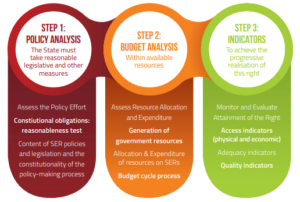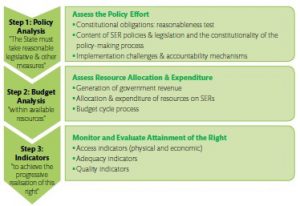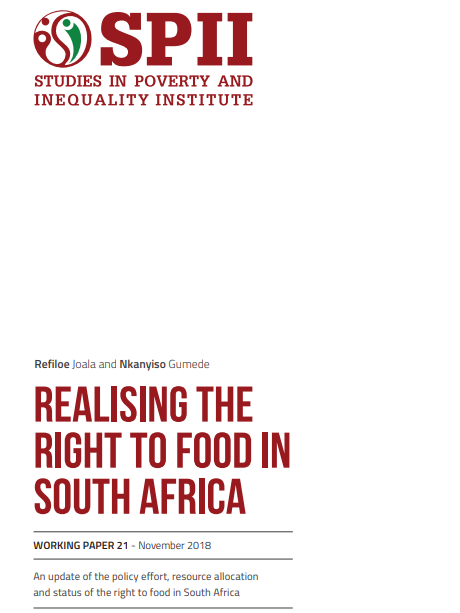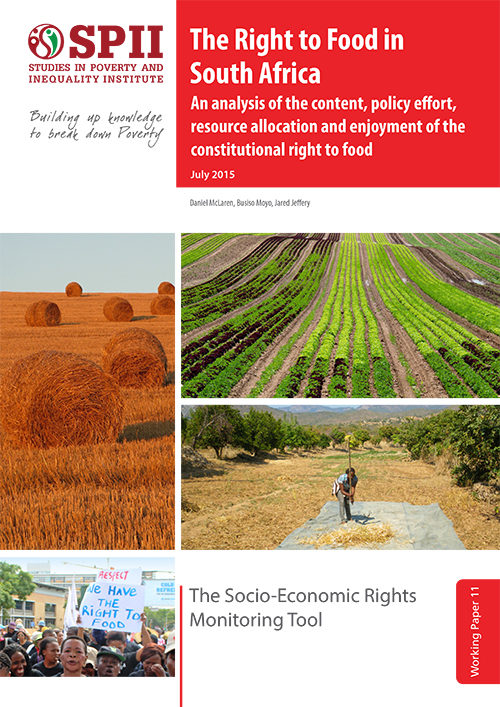Food
WORKING PAPER 21 - November 2018: Realising The Right to Food in South Africa
An update of the policy effort, resource allocation and status of the right to food in South Africa
 The Studies in Poverty and Inequality Institute (SPII)) is an independent research think tank that focuses on generating knowledge, information and analysis in the field of poverty and inequality studies.
The Studies in Poverty and Inequality Institute (SPII)) is an independent research think tank that focuses on generating knowledge, information and analysis in the field of poverty and inequality studies.
The working paper forms part of the ‘Monitoring the progressive realisation of socio-economic rights’ project conducted by SPII with support of the Foundation for Human Rights and endorsement from the Institute for Poverty, Land and Agrarian Studies of the University of the Western Cape, and the South African Human Rights Commission (SAHRC). The objective of this project through the combination of policy and budget analysis and statistical indicators is to provide a comprehensive framework and set of tools to monitor the progressive realisation of socio-economic rights. We hope that this will be a useful tool for policymakers, for those that exercise oversight over the executive, including Parliament and Chapter Nine Institutions (notably the SAHRC) and civil society.
Working Paper No 11: The Right to Food in South Africa
 Monitoring the implementation of socio-economic rights is a complex but crucial task. This Executive Summary provides a snapshot of some of the key findings of our Working Paper 11, ‘The Right to Food in South Africa’.
Monitoring the implementation of socio-economic rights is a complex but crucial task. This Executive Summary provides a snapshot of some of the key findings of our Working Paper 11, ‘The Right to Food in South Africa’.
In Chapter 2, international norms and constitutional jurisprudence, among other sources, are used to guide an analysis of the content of the right to sufficient food in South Africa and the obligations this right places on the state, while paying special attention to the right of children to basic nutrition. This lays the groundwork for the chapters that follow, with Chapter 3 asking whether the ‘legislative and other measures’ taken by the state to fulfil the right to food have in fact been reasonable? Chapter 4 then looks at government programmes to ensure the right food with a specific focus on budget allocations, to answer the question: what has been the allocation and expenditure record of government programmes to address the right to food? Have they been sufficient, equitable and effective given the levels of hunger and malnutrition in the country? Chapter 5 presents our indicators for the right to food, which provide a snapshot of the outcomes of these policy and budgetary efforts, in order to begin
to answer the question: what is the level of enjoyment of the right to food, two decades into South Africa’s democracy?













